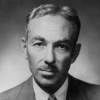E. B. White

E. B. White
Elwyn Brooks "E. B." White was an American writer. He was a contributor to The New Yorker magazine and a co-author of the English language style guide The Elements of Style, which is commonly known as "Strunk & White". He also wrote books for children, including Stuart Little, Charlotte's Web, and The Trumpet of the Swan. Charlotte's Web was voted the top children's novel in a 2012 survey of School Library Journal readers, an accomplishment repeated in earlier surveys...
NationalityAmerican
ProfessionWriter
Date of Birth11 July 1899
CountryUnited States of America
The other players did not testify before this committee, ... We are asking for these results in the context of Palmeiro's appearance before the Government Reform Committee.
There are buildings that some of your children are in that are older than Joe White. That's unacceptable, those buildings needs to be renovated.
We struggled against a good football team but I'm proud of the way we responded and very pleased with the way we ran the ball.
We?re not going to push it too far this early in the season.